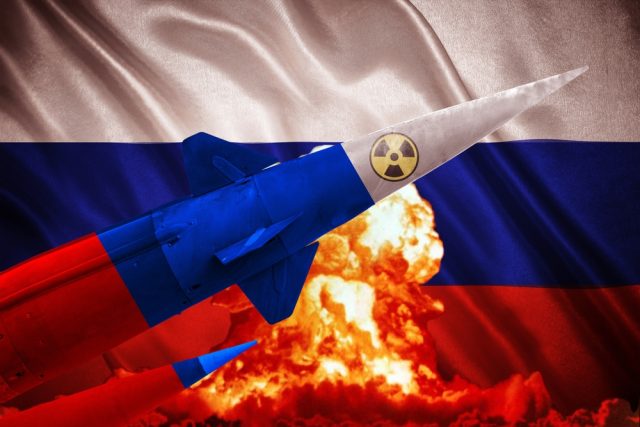
The conflict between Russia and Ukraine is continuing. The news from the front is grim and speaks of a strengthening of the Russian position in the war. A number of villages have been taken by Vladimir Putin’s army, and Odessa has been the city most in trouble in recent days. Several rocket attacks have indeed targeted the Black Sea city: according to Ukrainian media, fragments of a Russian rocket hit the famous Kivalov Castle, famous for its resemblance to the one in the famous Harry Potter saga. Five people were killed, including former pro-Russian MP Serhiy Kivalov, the owner of the castle. Also in Kharkiv, a rocket attack killed one person and injured about ten others. Ukrainian President Volodymyr Zelensky responded to the attacks by condemning the attack on X and mentioning the people killed in the raid: ‘I have just received reports on the situation in Odessa after a Russian rocket attack and in Kharkiv after a Russian-led air strike. Sadly, several people have been killed in Odessa. My condolences to their families. Many people were injured and they are all receiving assistance. President Zelensky went on to stress the importance of military aid from the Western allies: ‘Russia’s regular rocket attacks and the occupier’s efforts to destroy as many Ukrainian positions as possible can be stopped. And Russia’s offensive plans can be countered. To do this, the Ukrainian armed forces must be backed up by sufficient support from the partners: the Patriots that Ukraine needs now, the 155mm calibre that must be as safe as possible on the front line, and weapons with sufficient range to destroy Russian logistics. All partners’ intelligence services are informed of current threats and developments. We must make every effort to achieve our goals, which are shared by all those in the world who despise terrorists.
The US accusation: Russia using chemical weapons
However, the Russian advance in Ukraine does not appear to be without serious accusations from the US against Vladimir Putin’s Russia. According to the US State Department, Russia has indeed used a ‘chemical weapon’ against Ukrainian forces. This is chloropicrin, a substance banned by the Chemical Weapons Convention, which was signed in 1993 and came into force in 1997. Chloropicrin can be harmful to health if inhaled, as it is also used as a pesticide. In addition, the Russian military has used cluster bombs in recent attacks, the debris of which has been thrown more than a mile and a half from the point of impact, injuring many more people. According to the US State Department, ‘the use of such chemicals is not an isolated incident and is likely related to Russian forces’ desire to dislodge Ukrainian forces from fortified positions and gain tactical advantage on the battlefield’. As a result, the US Treasury Department announced new sanctions against some 300 companies in Russia and China found guilty of helping to reinforce Russian troops. Russia, for its part, responded by denying the accusation. Anatoly Antonov, interviewed by Tass, said the accusations were ‘hateful and unfounded’.
Defenceless soldiers killed in cold blood
Other accusations of human rights abuses against Russia have come from Human Rights Watch, which, after analysing footage taken by drones in recent months, has revealed that many prisoners of war have been executed ‘in cold blood’ by Russian troops. These were mainly Ukrainian soldiers who had surrendered or were about to surrender. The news from the Ukrainian front is therefore very sad, and it must be the task of the European and Western allies to continue to help Zelensky’s government defend itself against Russian aggression by supplying more weapons to defend Europe’s borders.
Putin threatens to use nuclear weapons
Even Vladimir Putin’s government has announced the possible start of nuclear weapons exercises in the war with Ukraine. These would be tactical nuclear weapons, certainly less powerful than conventional nuclear warheads, but still a very dangerous signal to Europe. Moscow’s decision comes in response to ‘provocative statements and threats by some Western officials against the Russian Federation’. In Putin’s government’s crosshairs is Britain, and in particular David Cameron, the British foreign secretary, for his comments giving Ukraine the right to use British weapons in the conflict. His Russian counterpart responded immediately by summoning the British ambassador, Nigel Casey, and declaring that Britain should now be considered a party to the war. But Nato and Kiev reacted with caution: ‘Russia’s nuclear rhetoric is dangerous and irresponsible,’ said Nato spokeswoman Farah Dakhlallah, ‘Nato remains vigilant. Our collective deterrence and defence posture will continue to ensure that every inch of allied territory is protected. Ukraine has the right to self-defence enshrined in the UN Charter and Nato allies will continue to support Ukraine. Russia started this illegal war and must end it. For Ukraine, this is the ‘usual blackmail’: according to the spokesman for the defence ministry’s intelligence directorate, Andrei Yusov, ‘nuclear blackmail is a common practice. Once again, this is not important news’.



 Subscribe
Subscribe